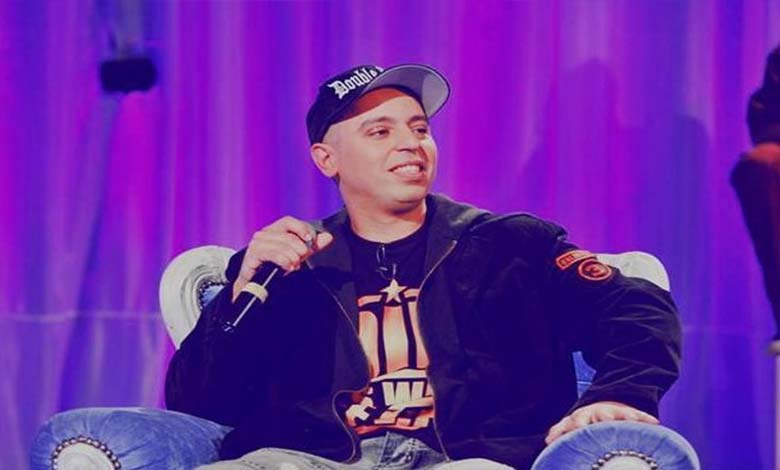“Uncle Tebboune”: A Rap Song Lamenting the State of the “New Algeria”
Lotfi Double Kanon achieves record views on social media with a new piece shedding light on the worsening economic and political conditions under President Abdelmadjid Tebboune.

Algerian rapper Lotfi Double Kanon sparked widespread debate and engagement on social media with his song “Uncle Tebboune“, delivering sharp criticism of the regime and highlighting the deterioration of the social situation.
-
Chaos Strikes Algerian Media: Exaggerated Propaganda for Tebboune Involves a Daily Newspaper
-
Tebboune Distances Himself from Attempt to Maghreb Union
The song garnered over a million views in just one day, drawing mixed reactions from listeners. While some praised the artist’s boldness in addressing issues like corruption and the current crisis, others opposed the political message conveyed in the lyrics.
With a daring style, Double Kanon captures the deep despair of youth who lose their lives at sea or succumb to drug addiction, referred to as “Blida, my love”. He addresses mass clandestine migration, mentioning how a Parisian neighborhood has turned into an “Annaba district”. He also criticizes Tebboune for the crisis with France and the rise of far-right movements amid the “influx of Algerians into the streets of the French capital.”
-
Explosive scandal shakes Tebboune’s Regime… Algeria supplies gas to Israel via Egypt
-
More than half of French people consider Algeria a terrorist threat
Through images of student protests, the artist highlights street violence, police repression, and the culture of silence enforced by authorities. He denounces the regime’s control, even in mosques where imams no longer dare to speak freely. He also targets Algerian media and propaganda outlets for ignoring these repressive practices, claiming that “the truth is no longer told.”
The song concludes with a highly political segment on the most recent presidential elections, emphasizing the public’s mass boycott and describing the results as “false.” He sarcastically asks: “Do 5.63 million voters out of 24 million registered equal 48%?”
-
The Maghreb Union tests the sincerity of Algeria’s intentions towards resolving the dispute with Morocco
-
Algeria pursues ineffectively Morocco’s expansion into distant geographical spaces
The song largely reflects a lived reality in an oil-rich country where social conditions should theoretically be better. It sheds light on often taboo subjects in Algeria, exposing widespread dissatisfaction over rising poverty, unemployment, and the perilous journeys of youth seeking a better life in Europe.
It remains unclear whether the artist will face legal prosecution or restrictions, but the Algerian regime has a history of cracking down on critics. An Algerian activist and artist was previously arrested and tried for criticizing the government in her works.
-
Macron will definitely not apologize to Algeria for years of colonialism
-
An Algerian-Iranian rapprochement on the verge of discord and tensions with Morocco
This is not the first time Lotfi Double Kanon has taken aim at Algeria’s leaders. He previously criticized former president Abdelaziz Bouteflika during his bid for a fourth term. His songs frequently highlight government failures in addressing local issues and offering practical solutions to social challenges.
The artist is among those banned from performing in Algeria, having been absent from the local music scene for years due to government-imposed restrictions. The authorities have sought to discredit him through smear campaigns on several occasions.
-
Algeria: First Arab Digital Summit “without papers”
-
Arab Summit in Algeria: Security Tightened and Letters of Welcome for Participants
Social media users have widely reacted to the themes addressed in the song, praising it for staying true to the essence of rap, which aims to convey the concerns of youth and various social groups. On Facebook, a user on the page “The Voice of the People” wrote: “An exceptional message from the leader of rap.”
On X, a user named Levi tweeted: “Listening to Lotfi’s new song feels like going back in time… As always, impactful words, opposing the regime, demanding freedom, and addressing national issues.”
-
Algiers Arab Summit – Preparations Completed
-
Algeria envoy leaves Morocco less than two hours after meeting Nasser Bourita
Tunisian journalist Sana Majri lauded the song on her Facebook page, noting that it marks the return of rap as a medium for critique and a voice for the people’s struggles.
President Tebboune faces numerous criticisms, particularly regarding freedoms, with many activists and journalists opposing his policies imprisoned on charges described by their defenders as “fabricated.” Others condemn the media blackout imposed by Algerian authorities to cover up social and political violations.
-
Bouteflika is buried next to the heroes of the war of independence in Algeria
-
Polisario Leader Returns to Algeria after Spain-Morocco Row
Since taking office in 2019, Tebboune has attempted to win the hearts of Algerians, portraying himself as a president of the people, despite being brought to power by the military. In a March interview, he expressed pride in his popular nickname, “Uncle Tebboune.”
During his latest campaign, he focused on improving social and economic conditions under his leadership. For months, he emphasized his role in reviving the “third-largest economy in Africa” following what he referred to as a “decade of gangster governance,” in reference to the former Bouteflika regime.












